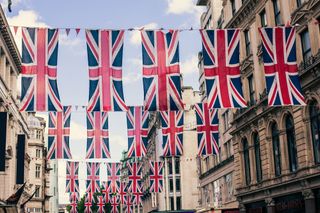Government woos US tech giants to set up shop in UK
Digital advisor Joanna Shields hopes HQ-UK's red carpet service will overcome tax qualms

The government is taking steps to woo US tech firms into making the UK their international headquarters.
The Prime Minister's digital advisor, Baroness Joanna Shields, will bang the drum for the United Kingdom with the HQ-UK project, as she prepares to roll out the red carpet for American businesses.
The initiative will provide a concierge service for US tech companies, helping out with advice to speed up visa applications, bestowing staff with priority status at border control checkpoints, and offering faster access to UK bank accounts.
It will also support US efforts to incorporate their companies in the UK, where they can take advantage of a 120 billion "internet economy", according to the government, and follows Mayor of London Boris Johnson clamouring to channel US investment into UK startups this week.
Shields said: "Nowhere beats the UK as an international hub for tech companies who are looking to thrive, innovate and grow.
"As someone who has spent 25 years operating on both sides of the Atlantic, I have no hesitation in saying the UK is now the best place to build a global business."
She also pointed to the strong startup clusters present around the UK, and initiatives to build digital skills by introducing coding to the national curriculum.
Get the ITPro. daily newsletter
Receive our latest news, industry updates, featured resources and more. Sign up today to receive our FREE report on AI cyber crime & security - newly updated for 2024.
For companies who want to bring exceptional talent from outside of the EU, the UK offers a number of specialist visas, including the Exceptional Talent Visa for highly skilled tech talent, as well as entrepreneur and investor visas.
The move comes as the UK competes with Dublin to become the number one destination for US tech firms to set up their international headquarters.
Facebook, Google and Apple all run their international operations from Dublin, as do Cisco, eBay, Dropbox and Amazon.
This is largely down to Ireland's 12.5 per cent corporation tax rate, compared to the UK's 20 per cent rate, due to come in force in April.
However, the UK rate has dropped down from 28 per cent in 2010 and from 21 per cent in 2014.
The government says it's the lowest rate in the G7 and joint lowest in the G20, while the Patent Box legislation is meant to reward innovation by levying just 10 per cent tax on income derived from UK or US patents.
However, this overlooks the controversial Google Tax' (the Diverted Profits Tax) announced in last year's Autumn Statement, which is the government's proposed method of raising money from sales made in the UK by companies based abroad, such as Google, Apple, Amazon and Facebook, the income of which is then diverted away from the UK.
While it's meant to address legal tax avoidance tactics used by big companies, the UK would be the first place to make such a move if it introduces the tax as planned on 1 April.




